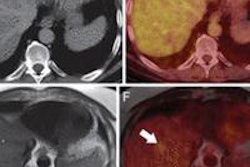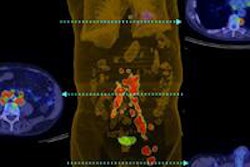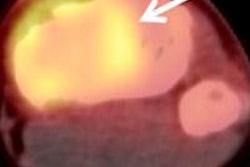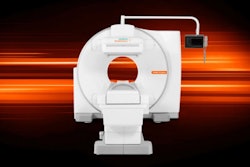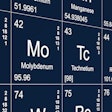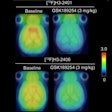In a new study, F-18 FDG PET showed potential for predicting which patients with inoperable lung cancer have more aggressive tumors and need additional treatment following standard therapy.
The findings, published online September 16 in the Journal of Clinical Oncology, could give oncologists a new tool to more effectively tailor treatment for patients with locally advanced lung cancer, according to lead author Dr. Mitchell Machtay from Case Western Reserve University.
The trial included 250 stage III non-small cell lung cancer patients at 60 cancer centers across the U.S. Patients received PET scans before and after combined treatment of chemotherapy and radiation therapy.
The researchers found that patients with high levels of FDG uptake after treatment had more aggressive tumors that were more likely to recur. In addition, the higher the standardized uptake value (SUV) for FDG in the primary tumor, the greater the cancer recurrence rate and the lower the survival rate.





